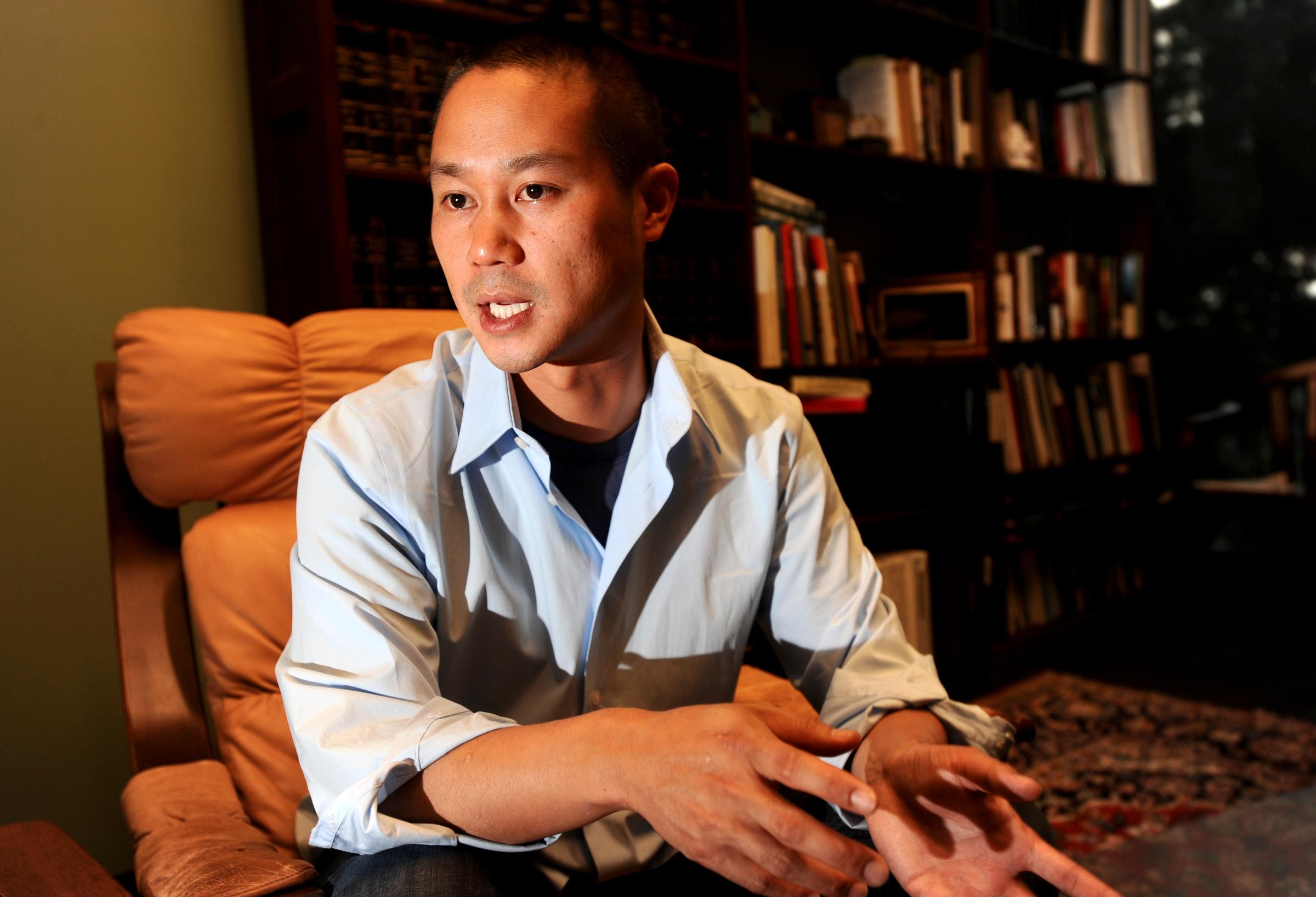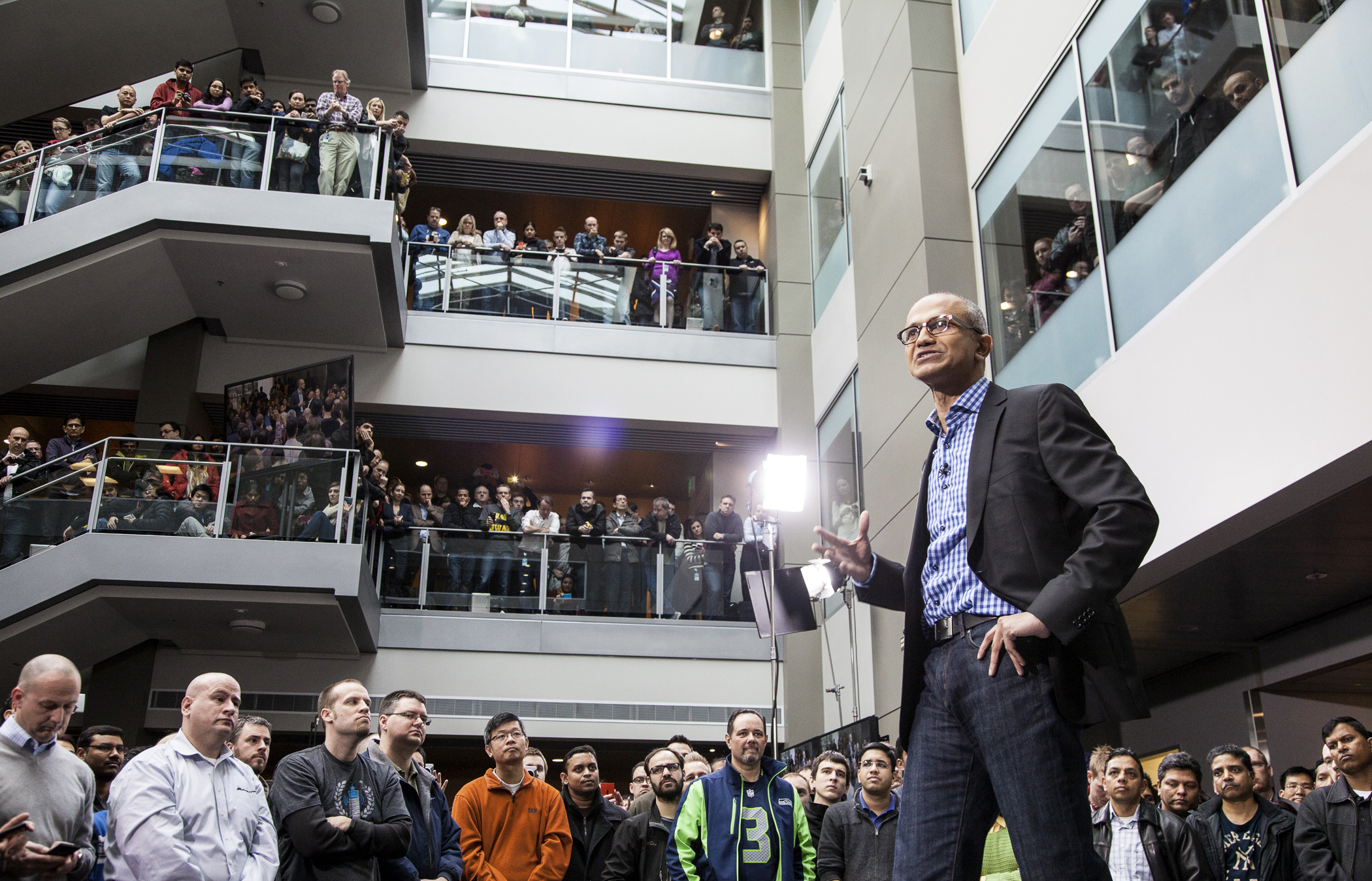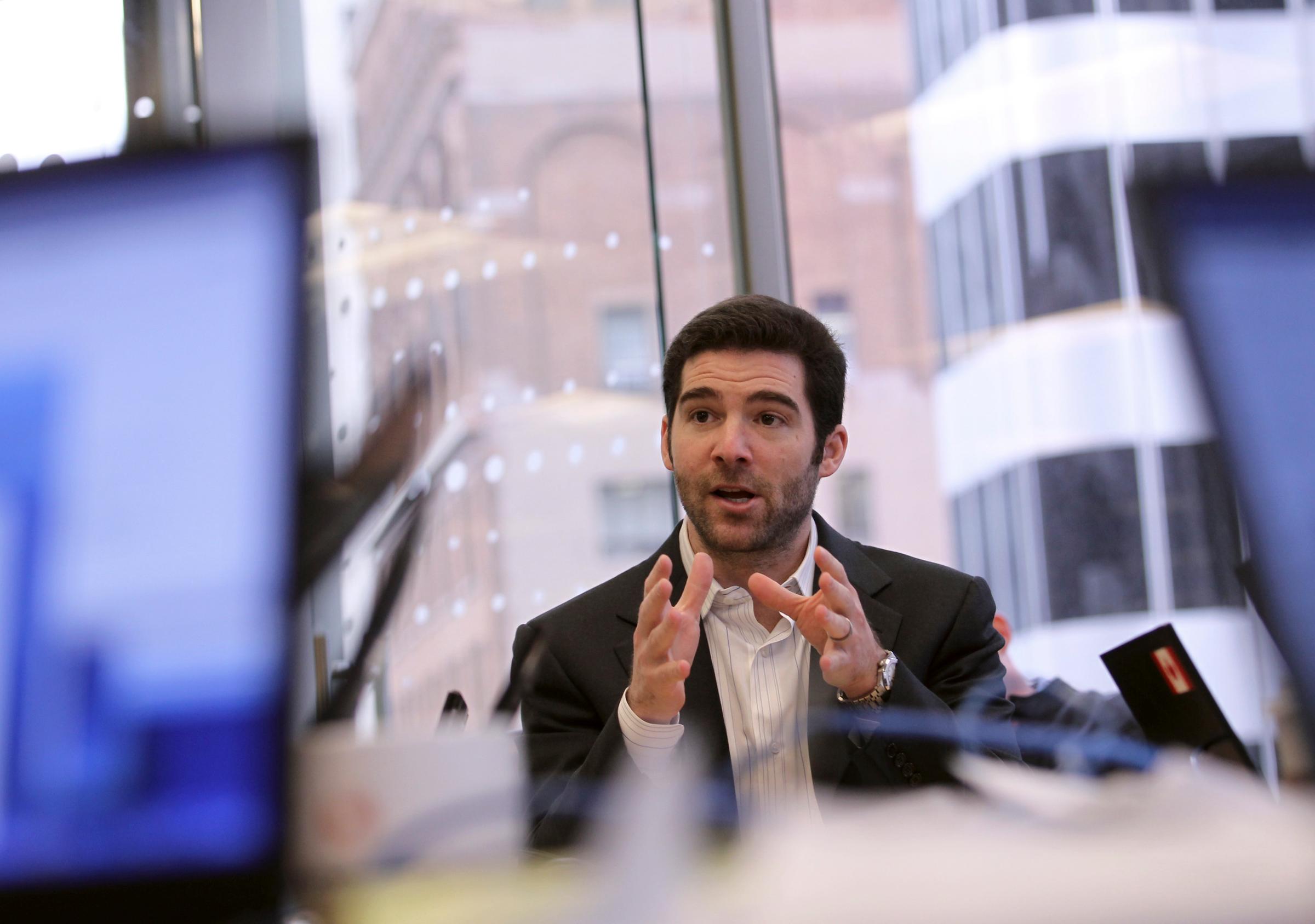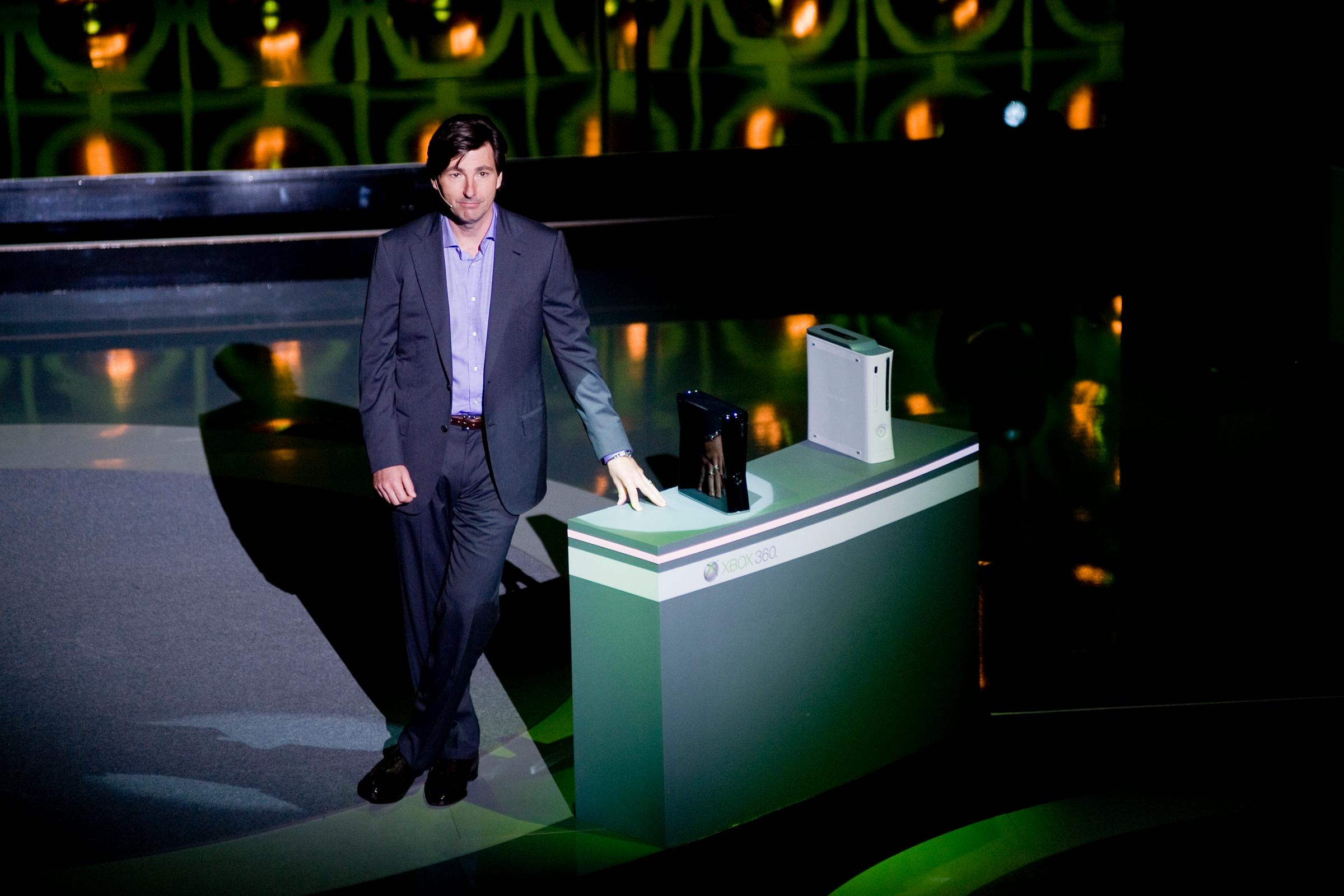Iron Lady. Steely Foe. The Goblin Under Google’s Bed. Since taking office on November 1, Margrethe Vestager has earned her share of epithets. By steadfastedly challenging the practices of companies like Google and Gazprom, the European Union’s competition commissioner has convinced many that she is a ruthless corporate opponent. But they may have gotten that wrong. More than fearsome, Vestager may simply be Danish.
On April 15, Vestager filed a Statement of Objection — the European Commission’s version of charges — against Google, alleging that the company ‘s preferential treatment of its own comparative shopping service constituted an abuse of its dominant position in internet searches. A week later, she struck again, this time alleging that Russian energy giant Gazprom misused its dominance to overcharge clients. Add in other inquiries — including ones into tax evasion by the likes of Apple, Starbucks, and the Luxembourg government — and it’s no wonder that she’s earned a reputation for being a stony avenger.
And yet, after six months on the job — and 24 years in politics — Vestager still seems surprised, and a bit pained, by the depiction. Speaking from the European Union offices in her home city of Copenhagen, where she has returned to spend the weekend with her family (they will move to Brussels after her daughters finish the school year), the 47-year-old objects particularly to the portrayal of her as eagerly attacking corporate giants. “Despite what it says in the headlines, we are not going after Google,” she says. “We don’t have an issue with Google or with any other company. We have an issue with certain conducts.”
That is the kind of fine line that Vestager is skilled at walking. From her experience as the leader of Denmark’s Social Liberal party, which blends a neoliberal, economy-first platform with left-leaning positions on immigration, education, and other social issues, she acquired an unsentimental pragmatism. “She’s practical, not into ideologies,” says Elisabet Svane, political editor for the Danish newspaper Fyens Stiftstidende, and author of White Smoke, Black Tower, a biography of Vestager. “She is not the kind of person who wants to to sit up all night debating how should society be.”
Which is why, perhaps, that after years in parliament, and stints as the minister of education, finance and the interior, she is so well-suited to her new job as anti-trust commissioner. “She’s come to the place where she seems most at home: half politician, half administrator,” says Kasper Fogh Hansen, a former communications director for the city of Copenhagen and advisor to the Social Democrat party. “She believes in the rational practices of bureaucracy and the exertion of economic theory.”
Which is not to say that she can’t be motivated by ideals. Explaining her new role as Europe’s corporate policewoman, she says, “For me, this is a very clear expression of European values: we are created free and equal, we have the same rights, we are worthy of the same respect. As a consumer or as a small business owner, you should know that there is someone who will take a look if things are not as they are supposed to be.”
Few of the European Union’s members take transparency and equality more seriously than Vestager’s native Denmark, which is not only repeatedly ranked as the world’s least corrupt country, but is also a place where even the heir to the throne picks up his kids at school in a cargo bike. Those particularly Danish values lie behind her decision, she says, to file charges against Google and Gazprom, two cases that were begun by her predecessor, Joaquin Almunia, but had stalled in negotiations.
“It is a clear and direct way of handling them,” she explains of her new approach. “Now, both companies in question know what we think. It is much more open, and for me — and maybe this is part of my Danish background — that is important.”
In fact, transparency may be the greatest change that Vestager brings to the commission. Almunia reached settlements with many of the companies, including Google, that he investigated, but because the negotiations were secret, there was little sense of resolution. “If a company settles, you’re not really establishing precedents, ” says Mario Mariniello, a researcher at the Brussels thinktank Bruegel who worked for the competition commission until 2012. “What Vestager is doing differently is bringing all this discussion out into the open, so that companies have help concretely from the commission to understand whether their behavior is right or wrong.”
That’s not the only thing she is doing differently. Unlike her predecessor, who was investigating Google’s general search dominance, Vestager narrowed her inquiry solely to e-commerce. The tighter focus, Mariniello says, makes it easier to prove her case. “She really gripped the part that is easier to show: if consumers are trying to find the cheapest laptop, and because of algorithm they were not seeing laptop options that were cheaper than ones proposed by Google, that’s a real problem. It’s easier than, say, [privileging] a weather page. When they just want information, it’s very hard to argue that an internet user is worse off with their one option.”
She was smart about the timing too. Vestager moved quickly to advance the cases she inherited in part because she was under pressure from colleagues within the European Union to demonstrate progress. But filing the Gazprom charges, precisely one week after the Google ones was a skillful bit of balancing that allowed Vestager to show she wasn’t specifically targeting American companies as some, including President Obama, had claimed. Plus “when people ask why did you bring the Gazprom case when you did,” she says with a wry smile, “I can respond, well, I was busy last week.”
So she has a sense of humor. And she can conjure up fervor of a sort, especially when confronted with notions that contradict her sense of fair play. In the Gazprom case, for example, the political stakes are exceedingly high — Europe has already seen that Gazprom, which as a state-owned company has denied that the European Union has jurisdiction over it, is willing to respond to sanctions by cutting off supplies. Yet Vestager rejects the notion that she needs to tread lightly for political reasons. “I know how tempting the theories of foreign policy and conspiracy are,” she says. “But I think it would be extremely problematic if competition law were taken hostage by political concerns, in both directions, either to do something for political reasons or not do something for political reasons. Because then you would delegitimize the enforcement of the law.”
Which is a somewhat ironic position for so consummate a politician to have. “She’s not afraid of power,” says biographer Svane. “She’s not afraid of taking it and of using it. She’s not sentimental.”
In person, Vestager does indeed come across as extremely controlled, a skill surely honed in her years navigating the always-shifting tides of Danish parliamentary politics. And she is clearly concerned with her image, appearing on the cover of women’s magazines and cancelling reservations at one of the more renowned restaurants in Copenhagen when she realized that it might look unseemly for a public servant to be dining at so expensive a place even though it was on her own dime. After recognizing that she needed to make more of an effort to connect with voters, she began highlighting some of her personal habits — her knitting of stuffed elephants; the baking of cakes decorated with political slogans for colleagues — in interviews and through her Twitter feed, which she updates herself.
That political education did not always come easily. In 2008, Vestager’s party was trounced in the general elections, a loss that the Danish press placed squarely on her shoulders. But after pushing the governing coalition to cut an early retirement program in 2011, and raising the retirement age to 65, she rebounded, leading her party to win 9.5% of the vote later that year. The change in fortune helps explain how Vestager became the inspiration, director Adam Price has said, for prime minister Birgitte Nyborg on his hit show Borgen (and not, as many presume, the current prime minister Helle Thorning-Schmidt). “What I got was the knowledge that I didn’t have to do it, that I could just roll up my rugs, put them under my arm, and leave, ” Vestager says of her time in the wilderness. “I’ve been brought up to never skip the thing, you go on and on and on and the more it hurts the better it is. Because this is Denmark, it’s a Protestant country. But there is profound freedom in not being stuck, in not having to do things that other people have told you to do.”
A freedom to choose that she intends to protect. Google and Gazprom must each respond to the commission’s statements of objection by July; if they are then found to have violated anti-trust law, each faces fines of up to 10% of their revenues. They will not be the only companies against whom Vestager faces off: her commission has also begun investigations into Apple, Fiat, Amazon, Starbucks and General Electric among others, and McDonalds — accused by a workers’ union of tax evasion — may well be next in line.
That kind of vigor — and her willingness to impose massive fines (in Google’s case they could reach $6.6 billion) if an anti-trust violation is found— no doubt contributes to Vestager’s reputation for toughness. But she also wonders if her culture doesn’t also factor into it. “Directness is a Danish trait,” she admits. “We are not always so polite.”
See The 7 Most Important Tech CEOs You Wouldn't Recognize







More Must-Reads from TIME
- Why Biden Dropped Out
- Ukraine’s Plan to Survive Trump
- The Rise of a New Kind of Parenting Guru
- The Chaos and Commotion of the RNC in Photos
- Why We All Have a Stake in Twisters’ Success
- 8 Eating Habits That Actually Improve Your Sleep
- Welcome to the Noah Lyles Olympics
- Get Our Paris Olympics Newsletter in Your Inbox
Contact us at letters@time.com